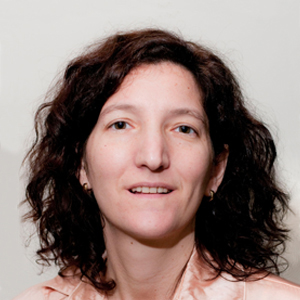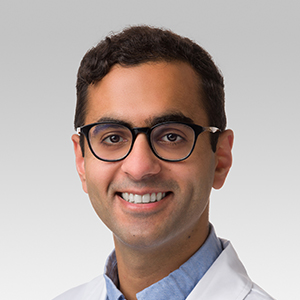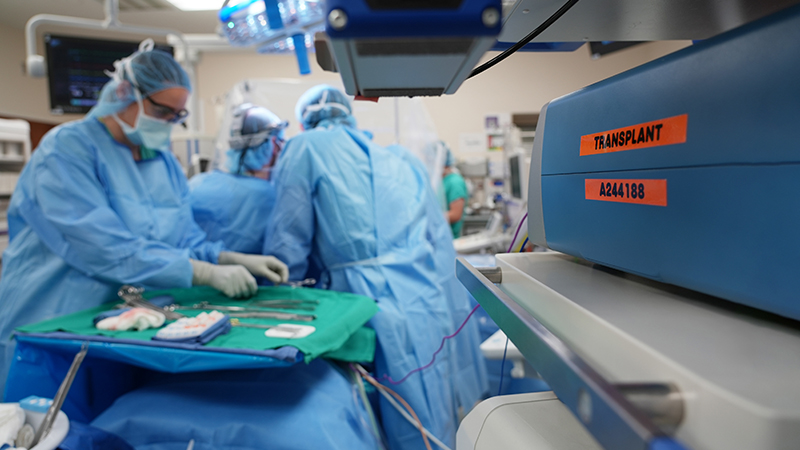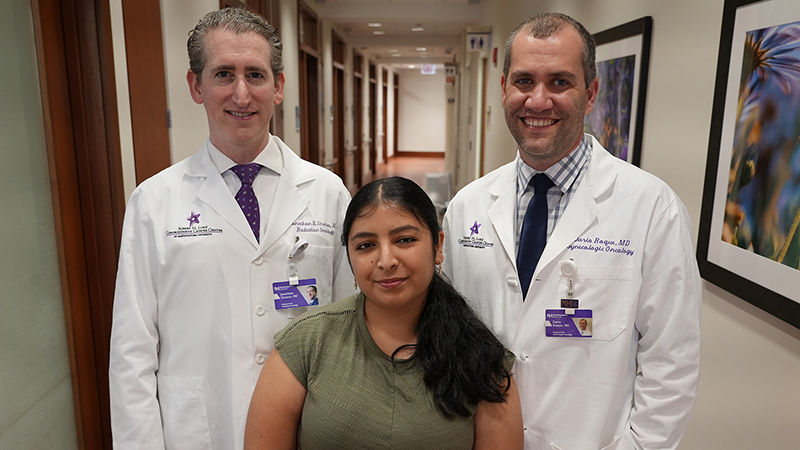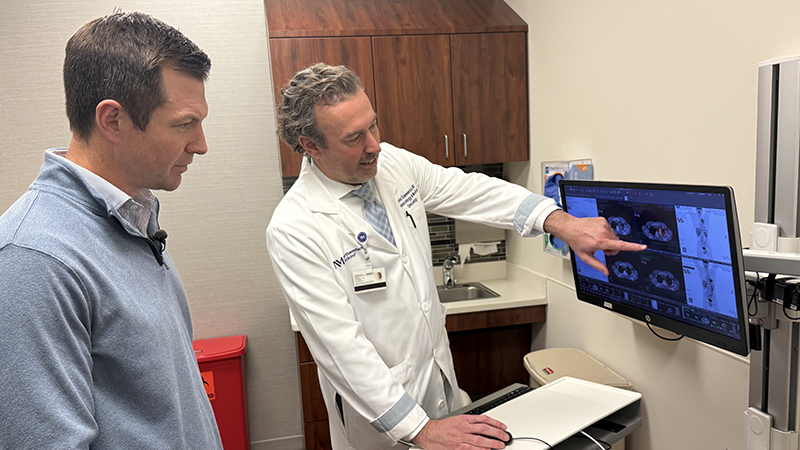“Dead Bug” Exercises Lead to Rare Myopathy Diagnosis
70-Year-Old’s Fitness Routine Reveals Unexpected Health Challenge
Published October 2024
June Furlan, a 70-year-old fitness enthusiast from Arlington Heights, has always been an avid gym-goer. She exercised every day and saw a personal trainer twice a week. But in February 2022, June noticed she was getting weaker. At first, she chalked it up to getting older, but when she realized she couldn't lift her legs up while doing a dead bug core exercise — something she had perfected over the years —she knew something was wrong.
Dead bugs and Dr. Seth saved my life.— June Furlan
June went to Rachel L. Amdur, MD, an internal medicine specialist at Northwestern Medicine. Dr. Amdur immediately called Arjun Seth, MD, a neuromuscular specialist and co-director of the Northwestern Medicine Myositis Clinic. After running several tests, they diagnosed June with a rare autoimmune muscle disease called HMGCR necrotizing myopathy (also known as myositis), which affects the muscles connected to bones, making movement more difficult.
Facts About Myositis
- Approximately 50,000 to 75,000 people in the United States have myositis.
- Symptoms include:
- Muscle weakness
- Pain
- Fatigue
- While there's no cure, medications and physical therapy exercises can be used to help manage the disease.
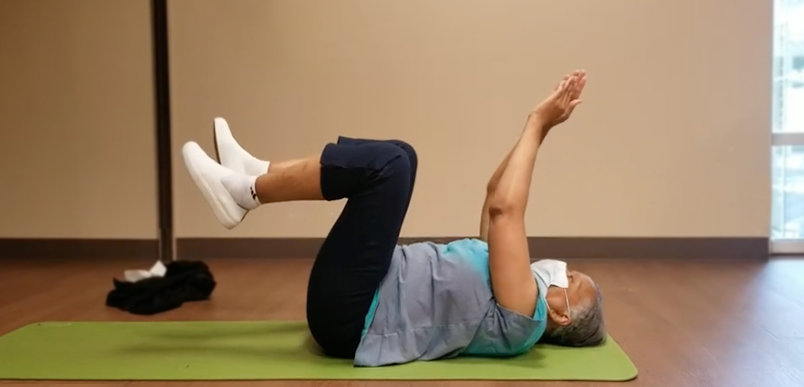
June is currently receiving monthly infusion treatments at Northwestern Memorial Hospital, which have helped her feel better immediately and allowed her to get back to the gym for her daily workouts. At the Myositis Clinic, she can see the six specialists she needs to manage her care, including specialists in:
- Dermatology
- Neurology (neuromuscular medicine)
- Pathology
- Physical medicine and rehabilitation
- Pulmonology
- Rheumatology
"Dead bugs and Dr. Seth saved my life, paving a path for me to recover," says June. "I hope my story serves as a lesson for others that sometimes symptoms aren't related to our age, but instead, a more serious problem that should be checked out by a physician."



